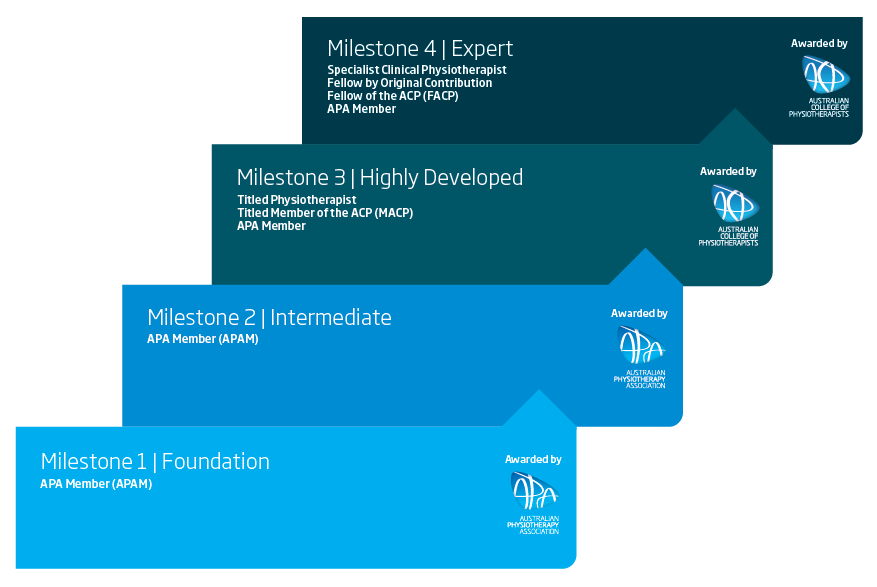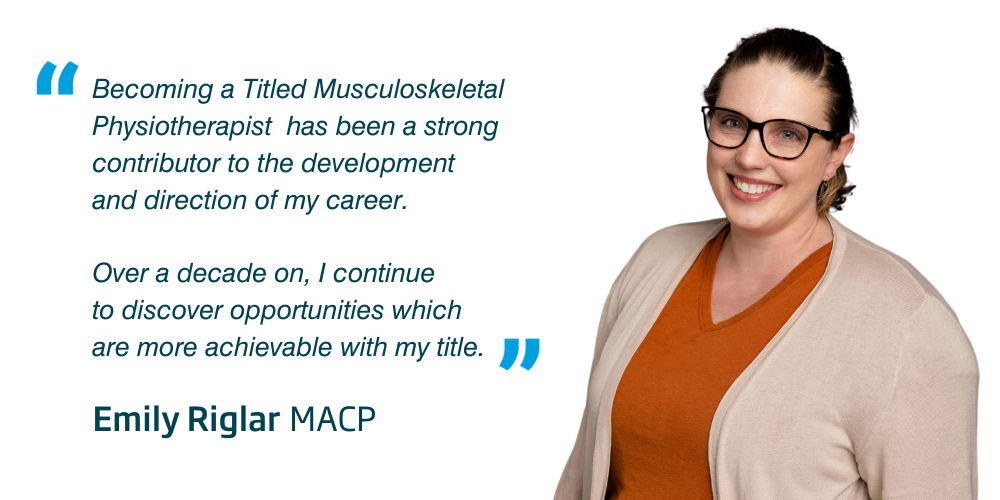The Australian College of Physiotherapists (ACP) represents leaders in physiotherapy clinical practice, research and academia whilst providing opportunities for physiotherapists looking to further their career, foster collegiality, promote professional excellence and lead their profession.
The ACP empowers physiotherapists’ lifelong learning journey towards achieving and maintaining the highest standards of clinical practice, research and professional excellence via its credentialing pathways at Titling (Milestone 3) and Specialisation (Milestone 4) of the Physiotherapy Competence Framework.

Explore Pathways to Titling and Specialisation below, check eligibility criteria and find out how to apply.
Unlock the next level of your physiotherapy career with the Australian College of Physiotherapists.


